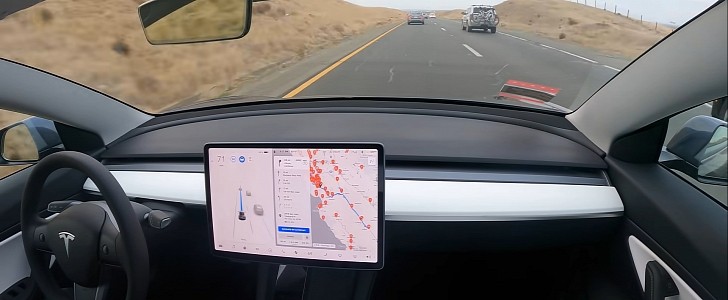China, the world's largest automotive market, is set to roll out measures to regulate data sent abroad by vehicles. The Chinese government said the efforts are meant to protect data and privacy.
China's Ministry of Industry and Information Technology offered no details about how the data would be collected or assessed. According to standards now in place, automakers are not allowed to export critical vehicle data abroad before checking with regulators and gaining official approval.
The Chinese ministry said regulators would “improve monitoring” of vehicle data security measures and “encourage” telecom companies to invest in cyber security technologies aimed at ensuring that goal.
Beijing has expressed concern about the potential mountains of data in the hands of private firms and says they’re worried that automotive data could be hacked or otherwise misused by foreign states. The government there reveals that regulators are developing hardware and technology to track data sent abroad.
The reliance on expanding the arrays of sensors and cameras to assist drivers is said to be the motivation for the new rules. While that data is often used by manufacturers to create new technologies like autonomous driving systems, the Chinese are aware that it could also be used for nefarious purposes.
Chinese automakers are currently required to store data generated from vehicles locally.
U.S. electric carmaker Tesla Inc is the focus of scrutiny in China over how the EV carmaker stores and handles customer data.
In May, Reuters reported that the effort has gone so far that staff at Chinese government offices were banned from parking their Tesla vehicles inside government compounds. The government explained that the measure was taken over concerns about cameras in the vehicles.
China Automotive Engineering Research Institute Co Ltd (CAERI) said in a recent statement that it has developed a system to analyze the path of data transmission from autos and that it uses a detection device to monitor uploaded data and data gathered from vehicles. According to CAERI, the system is the first of its kind in China.
The institute has tested the system against Tesla's Model 3 sedan and a list of SUVs made by Audi, Mercedes-Benz, and Land Rover. No results of those tests have yet been disclosed. For their part, automakers including Tesla, Ford Motor Company, and BMW are already at work setting up local data centers to meet the current Chinese regulatory requirements.
The Chinese ministry said regulators would “improve monitoring” of vehicle data security measures and “encourage” telecom companies to invest in cyber security technologies aimed at ensuring that goal.
Beijing has expressed concern about the potential mountains of data in the hands of private firms and says they’re worried that automotive data could be hacked or otherwise misused by foreign states. The government there reveals that regulators are developing hardware and technology to track data sent abroad.
The reliance on expanding the arrays of sensors and cameras to assist drivers is said to be the motivation for the new rules. While that data is often used by manufacturers to create new technologies like autonomous driving systems, the Chinese are aware that it could also be used for nefarious purposes.
Chinese automakers are currently required to store data generated from vehicles locally.
U.S. electric carmaker Tesla Inc is the focus of scrutiny in China over how the EV carmaker stores and handles customer data.
In May, Reuters reported that the effort has gone so far that staff at Chinese government offices were banned from parking their Tesla vehicles inside government compounds. The government explained that the measure was taken over concerns about cameras in the vehicles.
China Automotive Engineering Research Institute Co Ltd (CAERI) said in a recent statement that it has developed a system to analyze the path of data transmission from autos and that it uses a detection device to monitor uploaded data and data gathered from vehicles. According to CAERI, the system is the first of its kind in China.
The institute has tested the system against Tesla's Model 3 sedan and a list of SUVs made by Audi, Mercedes-Benz, and Land Rover. No results of those tests have yet been disclosed. For their part, automakers including Tesla, Ford Motor Company, and BMW are already at work setting up local data centers to meet the current Chinese regulatory requirements.



















